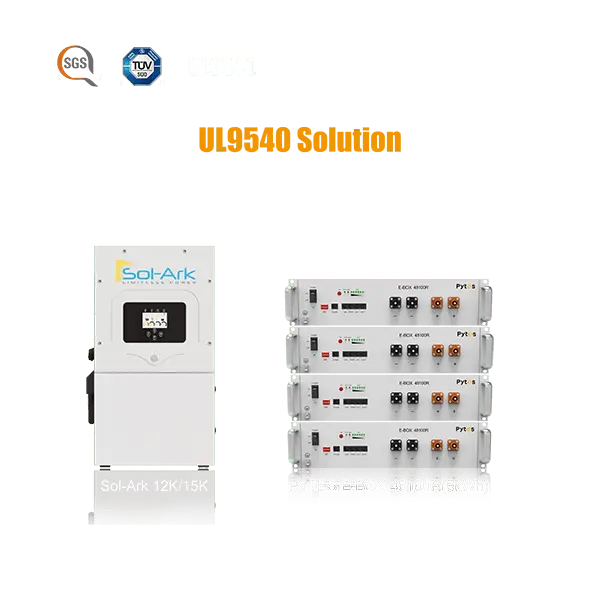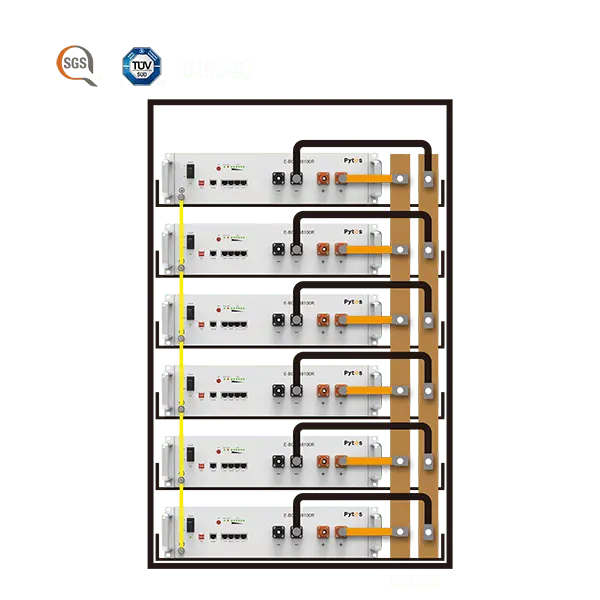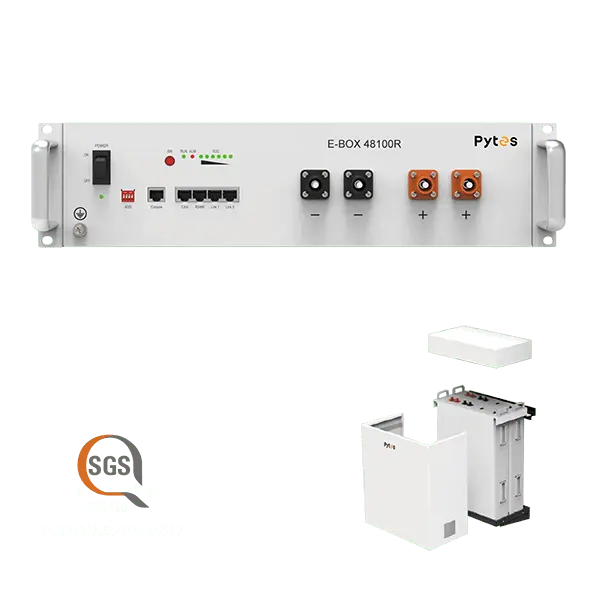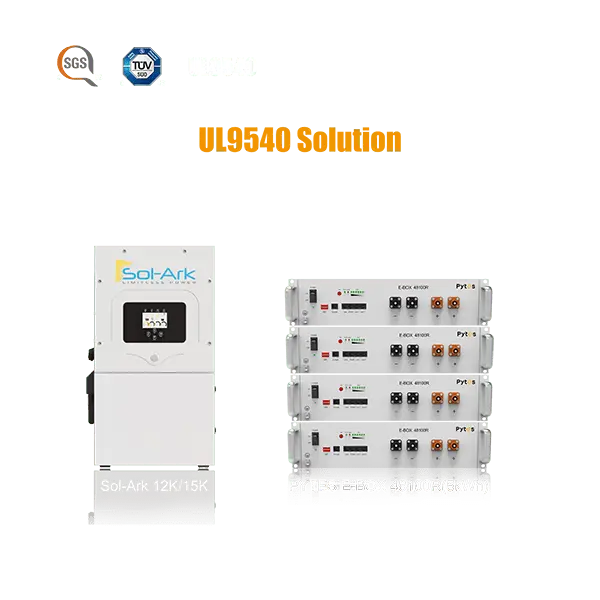In recent years, there has been a growing interest in renewable energy sources as a means to combat climate change and reduce dependence on fossil fuels. Solar energy, in particular, has gained significant popularity due to its abundance and sustainability. While solar panels have been widely adopted, the integration of solar battery storage systems is now revolutionizing home energy consumption. In this blog, we will explore how solar battery storage could change the way we consume energy at home, providing a more sustainable and efficient solution for homeowners.
Solar battery storage systems are designed to store excess energy generated by solar panels for later use. What sets them apart from traditional solar panel installations is the addition of batteries that store the excess energy instead of exporting it back to the grid. This stored energy can then be used during periods of low solar generation or during power outages. Solar battery storage systems typically consist of solar panels, an inverter, and a battery storage unit.
A. What is solar battery storage?
Solar battery storage refers to the technology that allows homeowners to store excess energy generated by their solar panels for later use.
B. How do solar battery storage systems work?
During the day, when solar panels generate more electricity than is consumed in the home, the excess energy is stored in the battery storage unit. This stored energy can then be used during the evening or when sunlight is limited.
C. Benefits of solar battery storage systems
Energy independence: Solar battery storage systems reduce homeowners' reliance on the electrical grid, providing them with a more self-sufficient energy solution.
Maximizing solar energy utilization: By storing excess solar energy, homeowners can optimize their energy consumption and reduce wastage.
Enhanced energy resilience: Solar battery storage provides backup power during outages, ensuring homeowners maintain electricity supply even when the grid fails.
Environmental impact: Solar battery storage promotes clean and renewable energy, reducing carbon emissions and contributing to a greener future.
Financial considerations: While initial installation costs may be significant, solar battery storage systems offer long-term cost savings through reduced energy bills and government incentives.

E-Box-48100R is an advanced solar battery storage system product designed, developed and manufactured by Pytes. It can be used for off-grid, backup, zero output, time-sharing, demand response, peak shaving, virtual scenes such as power plants.
1.Highligts of Pytes E-Box-48100R
One of the highligts of the E-Box-48100R is that it is compatible with most of the leading inverters on the market, one of which is the Sol-Ark Residential Inverter. No matter the make or model of your inverter, you can seamlessly integrate this solar battery storage system into your existing setup. This versatility comes in handy for homeowners looking to upgrade their energy storage capabilities without having to replace their entire solar system.
2.Advantages of Pytes E-Box-48100R
The main advantage of the Pytes E-Box-48100R is that it enables homeowners to store energy generated from renewable sources. By capturing and storing this energy, homeowners can significantly reduce their reliance on the grid, saving costs and enabling a more sustainable lifestyle. The solar cell storage system is rated for over 6,000 cycles at 90% depth of discharge (DOD) and 80% retention at 25°C for long life.
In addition, the Pytes E-Box-48100R is compact, flexible and easy to install, thinner than most 5kWh server rack batteries, can be installed vertically and horizontally, comes with brackets (E-Box-48100R Brackets) and battery housing, wall-mounted,floor-standing or server rack-mounted (R-BOX-B, R-BOX-IP64, R-BOX-OC(IV)). It is suitable for powering household appliances, electrical systems and uninterruptible power supply units. Market-leading performance and safety achieved through a state-of-the-art battery pack design, making it ideal for residential and commercial applications.
One of the primary advantages of solar battery storage is the reduced reliance on the electrical grid. By storing excess energy, homeowners can minimize their dependence on fossil fuel-based electricity and reduce strain on the grid, leading to a more sustainable energy system.
A. Energy independence with solar battery storage
Solar battery storage systems enable homeowners to become more self-sufficient in meeting their energy needs. By storing excess energy, they can rely less on grid-supplied electricity, particularly during peak demand periods.
B. Minimizing reliance on fossil fuels
Traditional electricity generation heavily relies on fossil fuels, which contribute to greenhouse gas emissions and climate change. By utilizing solar battery storage, homeowners can reduce their consumption of grid electricity, which is often generated from fossil fuel sources.
C. Reducing strain on the electrical grid
Peak energy demand puts a strain on the electrical grid, leading to potential blackouts or brownouts. Solar battery storage systems help alleviate this strain by reducing the need for grid electricity during peak hours, ensuring a more stable and reliable grid.

With solar battery storage, homeowners can shift to time-of-use energy consumption, taking advantage of varying electricity prices throughout the day. Time-of-use pricing charges higher rates during peak hours and lower rates during off-peak hours. By storing excess energy during off-peak hours and using it during peak hours, homeowners can maximize savings on their energy bills.
Solar battery storage provides homeowners with enhanced energy resilience during power outages and emergencies. This added resilience ensures a continuous power supply for essential appliances, such as refrigeration, lighting, and communication devices.
A. Power backup during outages
During power outages, solar battery storage systems can continue to power essential appliances in the home. This is especially beneficial during natural disasters or other emergencies when grid electricity may be unavailable for an extended period.
B. Reducing vulnerability to grid failures
Grid failures can occur due to various reasons, such as severe weather events or infrastructure issues. Solar battery storage systems reduce vulnerability to grid failures by providing homeowners with a backup power source, ensuring they can maintain essential services during such events.
C. Emergency preparedness with solar battery storage
Having a solar battery storage system in place enhances emergency preparedness. Homeowners can rely on stored solar energy to power critical appliances and maintain a sense of normalcy during emergencies when grid electricity is unavailable.

Solar battery storage systems enable homeowners to store excess solar energy that would otherwise go unused. Instead of exporting excess energy back to the grid, homeowners can store it for later use, maximizing self-consumption of solar energy and reducing wastage.
A. Storing excess solar energy for later use
Solar panels often generate more energy than is immediately consumed by the home. With solar battery storage, this excess energy can be stored and used when energy demand exceeds solar generation, ensuring a constant supply of renewable energy.
B. Optimizing self-consumption of solar energy
By utilizing stored solar energy, homeowners can increase their self-consumption of solar power. This reduces their reliance on grid electricity and maximizes the benefits of their solar panel system.
C. Reducing wastage and maximizing efficiency
When excess solar energy is not stored, it is typically exported back to the grid. However, solar battery storage eliminates this wastage by allowing homeowners to capture and utilize all the energy generated by their solar panels, resulting in increased energy efficiency.
While the initial installation costs of solar battery storage systems can be significant, homeowners can achieve a favorable return on investment over time. By reducing energy bills and taking advantage of government incentives and tax credits, homeowners can offset the initial costs and enjoy long-term savings on their energy expenses.
A. Return on investment with solar battery storage
Despite the initial upfront costs, solar battery storage systems offer long-term financial benefits. The savings on utility bills and the potential revenue from selling excess stored energy back to the grid can result in a favorable return on investment.
B. Government incentives and tax credits
Many governments and local authorities provide incentives and tax credits to encourage the adoption of renewable energy technologies, including solar battery storage. These incentives can significantly reduce the initial costs and make the investment more financially viable for homeowners.
C. Long-term cost savings
By reducing reliance on grid electricity and taking advantage of time-of-use pricing, homeowners with solar battery storage systems can achieve substantial long-term cost savings on their energy bills. The savings can offset the initial investment and contribute to the financial attractiveness of solar battery storage.

Solar battery storage systems have the potential to revolutionize home energy consumption by providing a sustainable and efficient solution. By reducing reliance on the grid, shifting to time-of-use energy consumption, enhancing energy resilience, maximizing solar energy utilization, and promoting environmental sustainability, solar battery storage offers numerous benefits to homeowners. While there are challenges and limitations to overcome, the continuous advancements in technology and the increasing availability of incentives make solar battery storage an attractive option for homeowners seeking to reduce their carbon footprint and save on energy costs. Embracing solar battery storage is a step towards a greener and more sustainable future.
Your Guide to Solar Energy Storage Systems